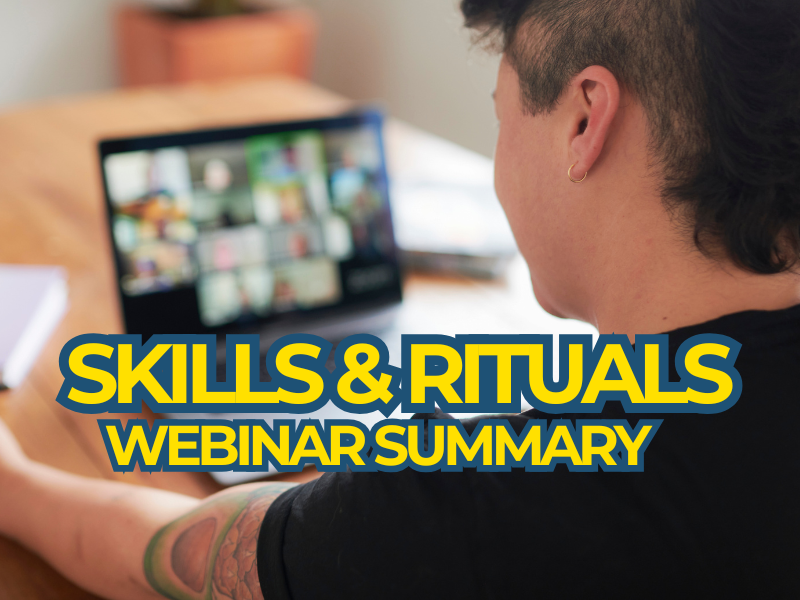
Skills & Rituals: Webinar Summary
In our latest Connection Heroes webinar, we explored a growing challenge that’s affecting every workplace, whether in-person, remote or hybrid: disconnection. We looked at what’s driving it, what it’s costing us and, most importantly, what we can do about it.
Led by Di Gates, the session focused on how to build more human connection at work, through three practical lenses: intention, skills and rituals.
Why it matters
As shared in the webinar, workplace connection has been declining for years, accelerated but not caused by the pandemic. The impact is significant: in 2024, Gallup reported that falling engagement cost the global economy $438 billion in lost productivity. If every worker were fully engaged, the potential gain could hit $9.6 trillion. And behind these numbers is a people problem too: one in three UK workers is now at high mental health risk due to loneliness.
That’s why Di founded Connection Heroes: to help businesses re-centre human connection as a leadership and cultural priority. In the session, we defined human connection as how much your people see, hear, value and trust each other. It’s a mutual, relational quality. It doesn’t happen by accident and it’s very tricky to spot in engagement surveys, as it can often happen at a subconscious level.
What we covered
To address the connection crisis, we explored three core areas:
1. Intention
Connection no longer happens by default in today’s distributed workplace. If we want it, we need to prioritise it. But we only prioritise what we truly value, so a big part of the session focused on the why: the science, data and emotional impact of connection and disconnection at work.
2. Connection Skills
In the webinar, Di explored the six core strengths that leaders, managers and teams can learn and practise, in order to strengthen connection, no matter where or how they work:
- Build Trust – through psychological safety, vulnerability and gratitude.
- Be Inclusive – by recognising differences, adapting communication, and valuing diverse ways of working.
- Communicate & Collaborate Brilliantly – using smart tools, clear language and intentional communication.
- Be Radically Responsible – owning your impact, biases, and behaviours.
- Notice the Positive – shifting mindset to release energy and spot opportunities.
- Be Flexible – staying curious and resilient in the face of change.
Special attention was given to line managers, who Di described as “knackered but critical” as they drive 70% of team engagement, yet are often under-supported. We discussed how these new Connection Skills are essential to help them thrive in modern, distributed workplaces.
3. Connection Rituals
To embed these Core Strengths, we ended by looking at the role of rituals – small, repeatable habits that keep connection alive. Whether it’s how you open meetings, share feedback, or show appreciation, Connection Rituals help move good intentions into everyday action.
Whether you joined us live or couldn’t make it this time, we hope this gives you a helpful summary of what we covered.
If any of the ideas sparked your interest, we would love to hear from you. And if you’d like to dive deeper into any of the six strengths, just shout – we’re here to help.



